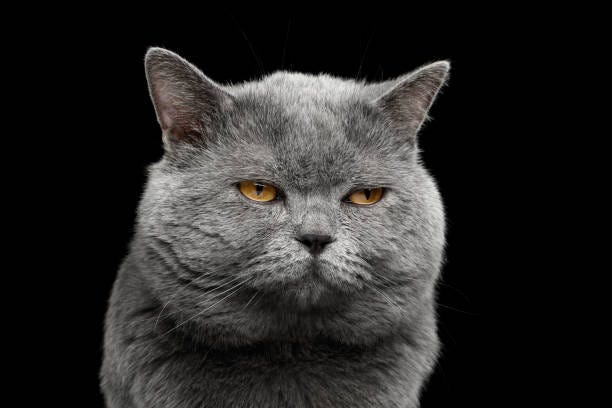There is this perception in some circles that, in order to be a devotee of literature, you have to engage with heavy topics—war, environmental devastation, murder, blight—and relish tonal gloom, complexity to the point of obscurity, and readerly powerlifting, all of which is inherently more valuable or profound than, say, a comedy of manners or absurdity or simply getting some lone reader in a room to jump up and say, “Me, too!”
And I’ve got to say:
What a pile of stinky pickles.
Before we go on, let me admit that I’m on record for drawing attention to difficult emotional subject matter, but as you know, opinions are subject to change, and subjects are subject to nuance.
So, here’s another possibly overstated opinion that’s subject to change: Ed Wynn and Dick Van Dyke singing “I Love to Laugh” in Mary Poppins is one of the best moments in all of cinema. Who doesn’t love to laugh? (I’m not sure, because they are not my friends.)
Go ahead, watch the clip. Try not to at least smile.
Aside from this being a great metaphor for the creative process—Mary Poppins represents the cranky editor who’s already mastered her craft, and Van Dyke and Wynn have just discovered theirs—this is also a wonderful reminder that joy is a wellspring. “The more I laugh, the more I’m a merrier me.”
Don’t discount Comedy Writing Secrets, even though it’s published by Writer’s Digest Books, most of whose catalog consists of cheap craft tips (google-able) churned out in a factory of unsuccessful novelists. (Although, I really wish the cover said “More Than 4,000 Copies Sold!”)
Anyway, a few freebies, if you will.
Some names and brands are inherently funny.
Tutti Frutti, Skittles, Cracker Jacks, Stubbs Prosthetics & Orthotics, Wienerschnitzel, Kleenex, Jack Links.
And here’s one you can use on your family later.
“I have to run to the store.”
“For what?”
“Let’s see…milk, eggs…Jack Links.”
That’s the rule of triples. The third option is really up to you—better if it’s a silly name. You could say knish or Fruity Pebbles or throw in a total oddball like Whoopee Cushion. “Milks, eggs, and whoopee” or “Milk, eggs, whoop cush,” might be even better.
Rule is? Make the third thing a curveball, thus the element of surprise. I came, I saw, I ate a kumquat. Baseball is a game of balls, strikes, and bobbleheads. What did I do today? Some reading, some writing, and a small panic attack. It was a great day.
One of my favorite triples comes from Jon Stewart: “I celebrated thanksgiving the old-fashioned way. I invited everyone in my neighborhood to my house, we had an enormous feast, and then I killed them and took their land.”
You know the old saying about tragedy and comedy, right?
Another freebie? Exaggeration reigns supreme in comedy. Baseline reality is rarely funny unless you have an inherently funny situation like a parrot who only speaks in cuss words. You can overstate, but I prefer some good old-fashioned bone-dry understatement.
“I have my standards,” Bette Middler said. “They may be low, but I have them.”
In Monty Python and the Holy Grail, after getting his arm chopped off, the black knight says, “‘Tis but a scratch.” (Fun fact: this line is stolen from Shakespeare. Mercutio, after getting stabbed by Tybalt in Romeo and Juliet, says, “Ay, ay, a scratch, a scratch.”)
But overstatement rules the joke playground—all the your mommas and we were so poors—and they’re easy enough as a fill-in-the-blank: “He lost his virginity so long ago it feels like it’s grown back.” That’s from Tony Tulthimutte’s Rejection, which was great to see on the National Book Award longlist.
Big prizes are often reserved for the unfunny, and comic writers usually win the big prizes for their least funny books, as with George Saunders’ Lincoln in the Bardo and Colson Whitehead’s Underground Railroad. (Don’t get me wrong: I loved both books.) The Booker Prize is famously soaked in tragedy. Societal collapse, unhappy marriages, generational sagas with legacies of trauma. Aside from The Bee Sting and James, no overtly comical books garnered nominations in the last few years.
Alexi Duggins, writing for The Guardian a few years back, says this:
Even in the soul-chilling battlefields of the first world war, soldiers told jokes. Gallows victims went to their deaths with quips for final words. So ever-present is the desire to generate laughs that it is tempting to say the truly lightweight cultural works are those that lack funnies. If a film, novel or TV series features a world where no one makes jokes, it is ludicrous. It is as believable as Arthur Fonzarelli on waterskis; as credible as Indiana Jones nipping into a fridge to weather a nuclear blast.”
I have a place in my dark heart for even the saddest, loneliest novels, but I don’t have a place in my life for humorless people. And I don’t know many people who are truly humorless, but in case you encounter one at a backyard barbecue this summer, make sure to throw in some Tutti Fruttis or exaggerated flimflammery.
But whatever you do, keep a straight face.
+++
Please spread the love to your local libraries, independent booksellers if you can, or shop online at Bookshop. Thanks, as always, for reading.






Love this Josh! 😕🤓🤨 By the way, do you know how long it took me to pick out just the right emojis????? HUH? 😂